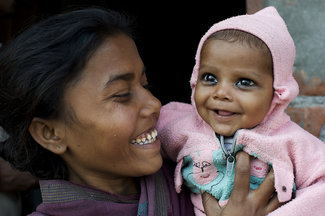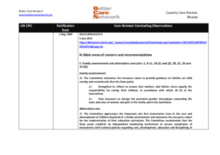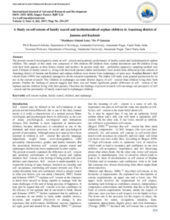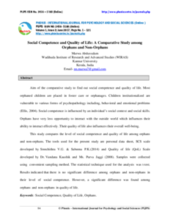

Displaying 461 - 470 of 753
The approved Islamabad Capital Territory (ICT) Child Protection Bill 2017 by the National Assembly Standing Committee on Human Rights, which safeguards minors from violence, abuse, exploitation and neglect in compliance with constitutional provisions and international obligations, is a step forward in the right direction - but student Hammad Asif expresses lingering concerns about reporting incidents of child abuse and neglect.
This country care review includes the care-related Concluding Observations adopted by the Committee on the Rights of the Child during the seventy-fifth session (15 May 2017 - 02 Jun 2017) of the Convention on the Rights of the Child.
The National Assembly's rights panel in Pakistan passed two bills to strengthen protective measures for children: The Islamabad Capital Territory Child Protection Bill 2017, which ensures the protection and care of all children, including unattended orphans; and the Juvenile Justice System Bill 2017, which aims to make special provisions for the legal protection of children.
In this video, Kate van Doore describes the process of 'paper orphaning,' a term coined to characterize how children are recruited and trafficked into orphanages to gain profits through international funding and orphanage tourism.
The present research investigated a study on self - esteem and academic performance of family reared and institutionalized orphan children.
This six part video series follows Jyothi Svahn, who, believing she was 'stolen' and trafficked as an 'orphan', goes on a multi-country hunt for her birth family - and uncovers an international adoption industry built on lies, greed and heartbreak.
Although Sri Lanka's common law does not allow underage marriages, the Muslim Marriage and Divorce Act (MMDA) allows community leaders to determine the marriage age. Muslim women activists are now coming forward to open up a discussion about reform, including the young girl featured in this article.
Many children living in Nepalese orphanages are not truly "orphans," but were rather trafficked into orphanages after their families were falsely promised their children would be brought to boarding schools to receive an education. Next Generation Nepal aims to reunite trafficked children with their families.
This article features the 6-part web-series "Manufacturing Orphanages," which follows of Jyothi Svahn as she returns to India several years after her adoption in search of her birth family and reveals the "demand-driven" nature of the international adoption system and how it fuels the trafficking of poor children living in residential care.
This study compares the level of social competence and quality of life among orphans and non-orphans.



